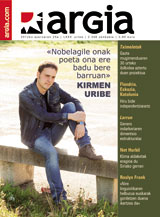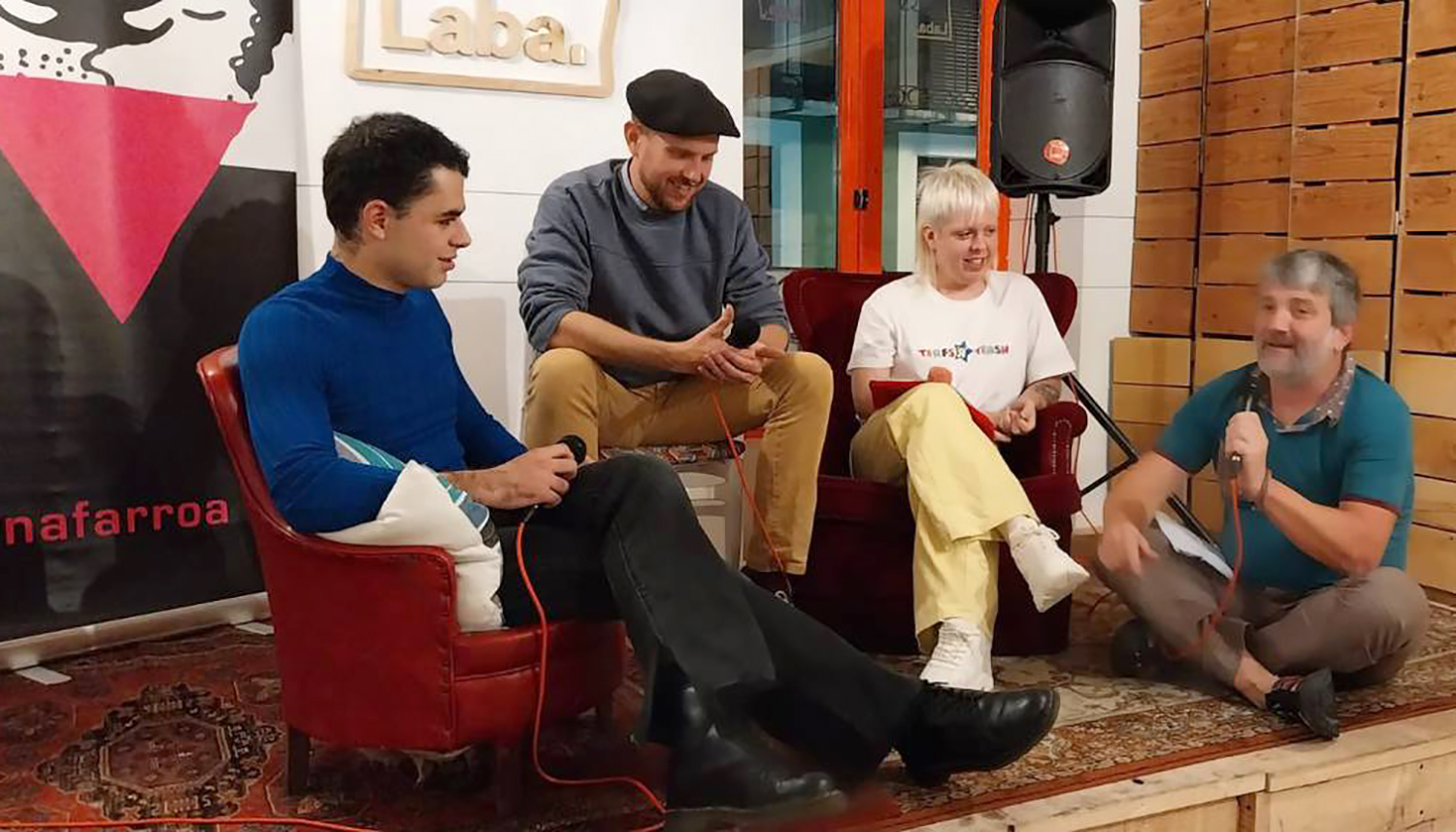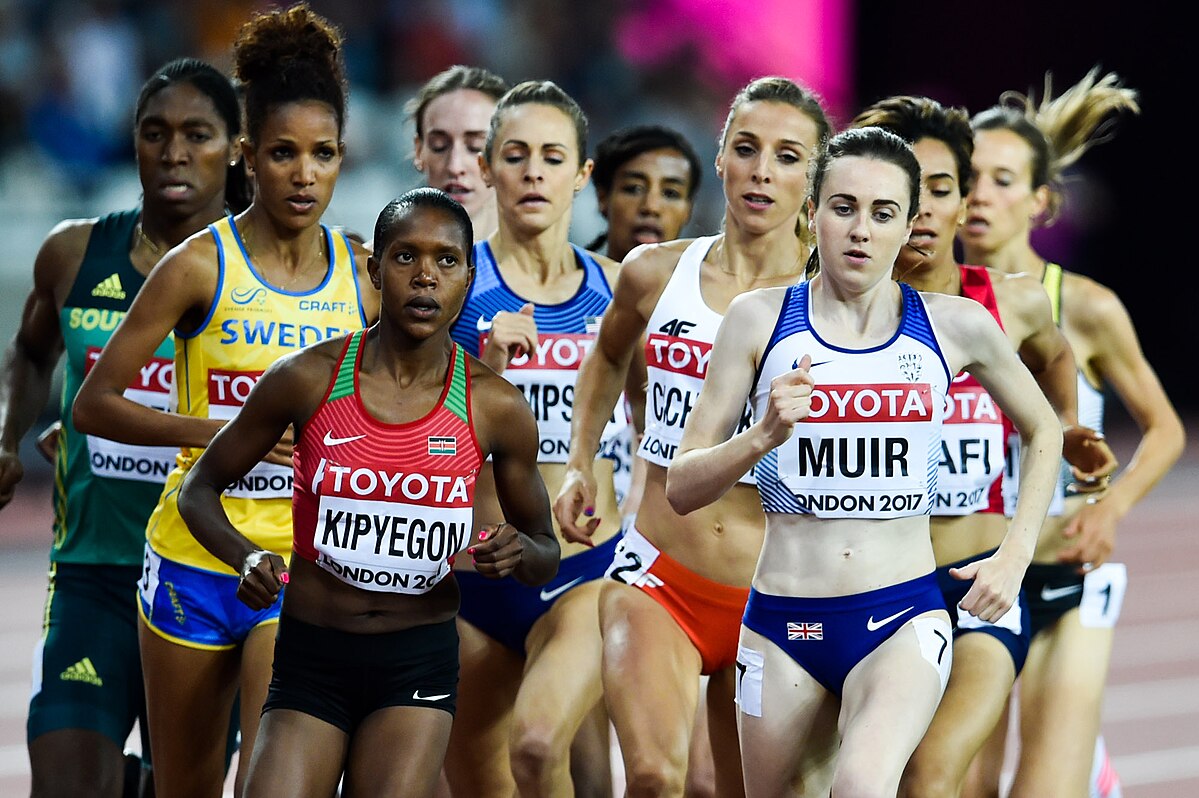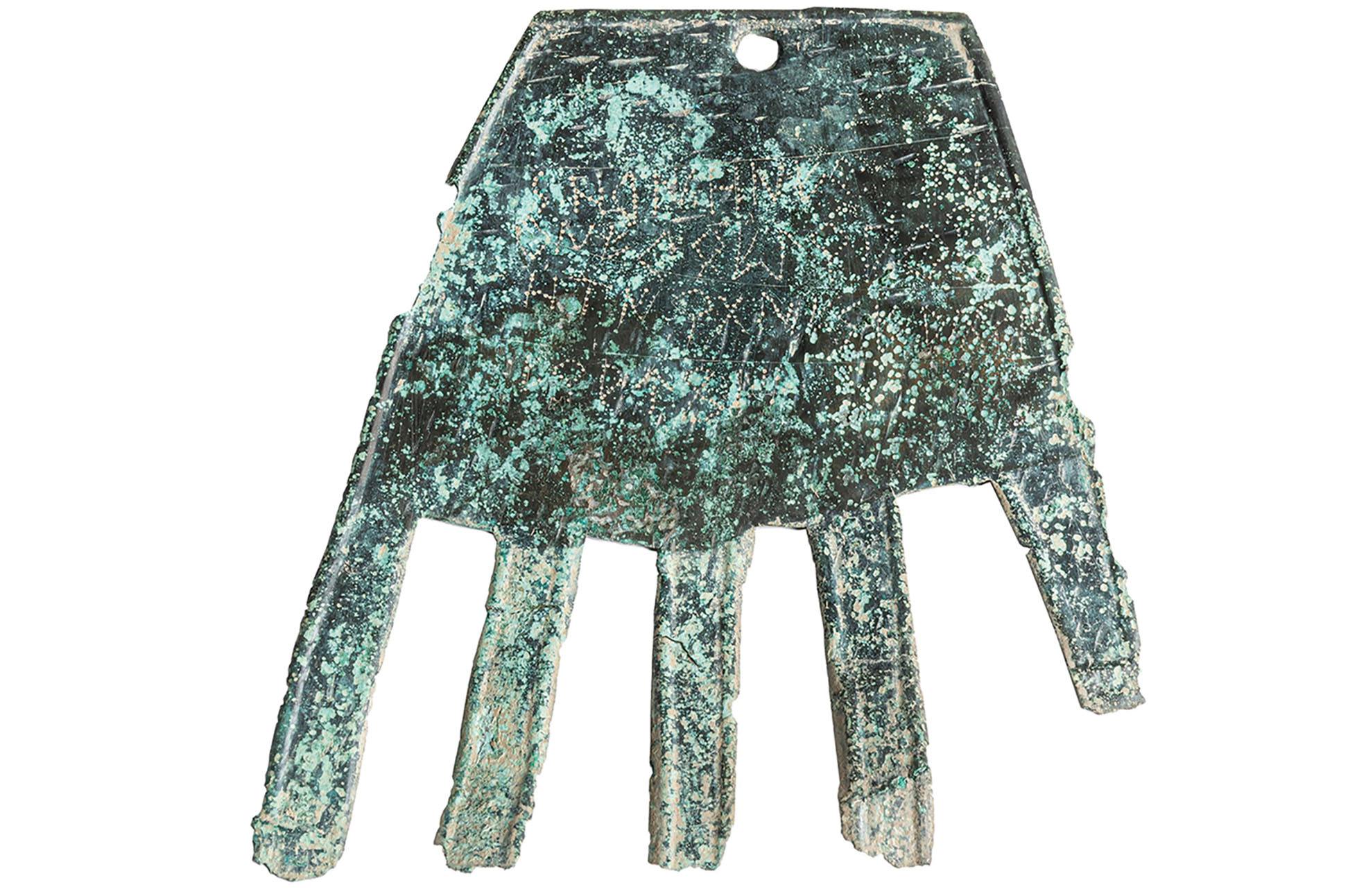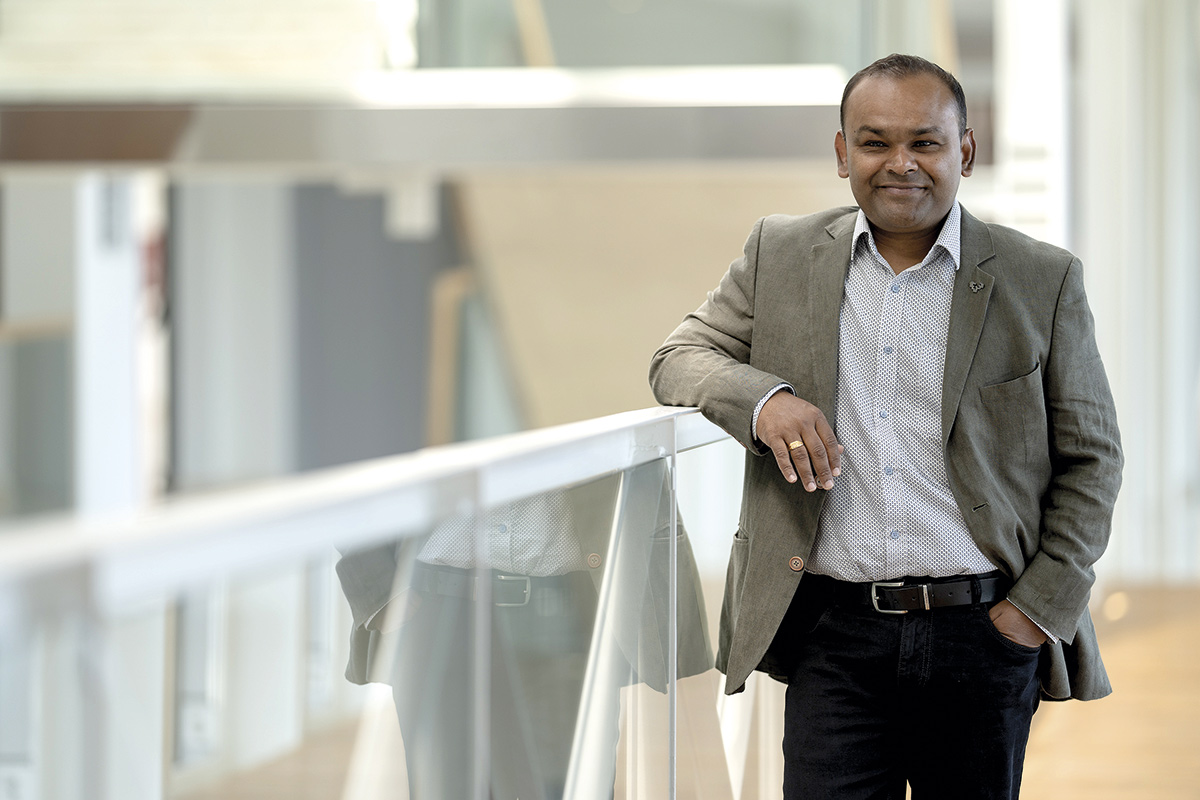"A language that has nothing to do with anyone, why study it?" They say Iowa."
- California, Iowa, Chicago -- and so do Massachusetts, Illinois or New Jersey. Here we are told as if we had tornadoes, hurricanes and floods from here. Fortunately, Roslyn Frank is counting the opposite.
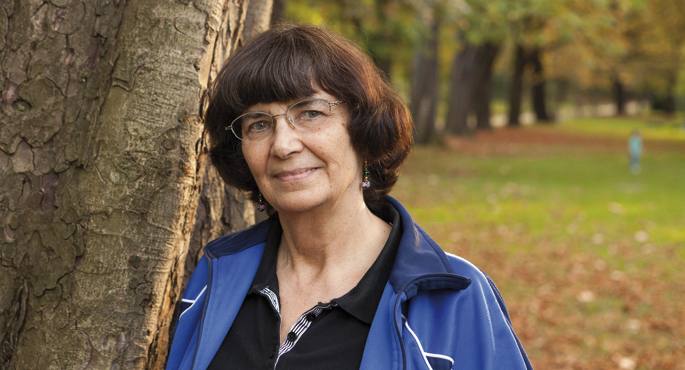
Correct the errors in Basque to me, e.
Do you make mistakes?
Of course! When I start talking, nothing else.
I thought linguists didn't make linguistic mistakes.
Yes, of course!
What is a linguistic error?
For example, the verb is a bad game. In my case, I've learned Euskera from hearing, and so when I start talking, I make mistakes. I'm a linguist, of course, and I know the language, but I've said it, when I start speaking -- I was born in California, in 1939. From there I went to Iowa, near Chicago. It was a Great Depression in 1929 and people headed west. We in the Middle East were father and mother families who were Iowan. I learned linguistics right there. I was bound because linguistics and literature matched. They're two different areas, but then they didn't differentiate, I mean at that time. Now students have the opportunity to differentiate them, but at that time they do not.
What do you prefer, linguistics or literature?
It's not easy to decide. Linguistics is linked to culture, and literature, let's say, oral, what does culture show, but culture? Literature is made through language, otherwise it is not possible. Linguistics, in itself, studies the internal system of language, but the only thing that studies is my linguistic form, mine is cognitive linguistics.
What about cognitive linguistics?
Nothing is known here. It is true that he is not very old. They started twenty or twenty-five years ago. This is where Chomsky’s linguistics have prevailed, namely the search for universal standards that are behind all languages. Creative grammar, if you want. In this sense, the Basque country has the tool to find these universes, since they do not analyze the Basque country because they find values within the same language. The aim of my linguistics, on the contrary, is to analyze Euskera itself, to investigate what keeps in depth, Chomsky's grammar is lagging behind today, it's getting smaller and smaller.
“To analyze the values of Euskera itself,” you say. Is ours a special language in that, or are all languages special?
All languages have their peculiarities, but I think the Basque case is different. It is a very old language and, on the other hand, has not changed much. For example, sleep. “I have slept,” it is heard many times, but also “I have slept.” This is the oldest and most special form. Perhaps this way of saying appears in two other languages. “I’ve slept.” I mean, he took me. It's a very special way, among the languages of the world. “I have slept,” “I have slept,” “I have slept,” this last form taken from the outside.
Does this mean that we've also changed the way we see the world?
Of course. Through language you see what the world of the time was like, how the Basques of then saw the world. The Basque country offers us the vision that the Basques had of seeing the world. As it has many dialects, a form that does not appear in one dialect appears in another. It has that wealth.
That’s why you’ve launched yourself to study colors, or numbers, on the Patziku Perurena route…
That's it. Perurena does cognitive linguistics, although she doesn't know. I know Patziku and he doesn't know what he does! Their books are very good, they touch the depth of language.
Do the linguists here welcome cognitive linguistics, their studies?
Either you don't understand it, or you care about a radish. I'm certainly a weird bird. In Iowa, or in Australia, science isn't that rare, but in Europe, you don't think so. However, cognitive linguistics are getting stronger and stronger. Here, Iraide Ibarretxe – at the University of Zaragoza –, Koldo Garai and I are making this journey.
I see cognitive linguistics linked to ethnography. And I don't even know if I'm right ...
Yes, language ethnography, maybe, or neurolinguistics, if you want. Saying “I’ve slept” means that it’s been thought differently. There was a time when the Basque saw the world different, different from what it was today. How is it said in English? I am sleeping. I mean, it's me who commands about sleep; I'm the captain. I want to find the schema behind it. It is said in Basque “Han-hemenka”. In English, on the contrary, “here and there”, in the opposite direction! “Return”, here and “come and go” in English. Quite the opposite. There are several examples, and in Euskera, always, the movement is from the outside inwards, you think about others first. That's the direction. In English terminology, Dialogic is Subjectivity, mutual identity, to put it mildly. The point is that the Basques have a way of thinking that way, more or less.
Are we still thinking that way, or have we thought of the past?
This is more or less what follows. You know, some sleep and some sleep, ha, ha. “I am hungry,” “I am hungry,” “I am hungry.”
Is it simply a linguistic cuckoo, or rather a kind of linguistic colonization?
In this case, the way of saying becomes a way of seeing the world. But the linguists here don't see it and don't listen to it. It does not exist for them! What do you do when you talk about hika? I think that is a matter of Mutual Identity.
Is it a strange subject in our faculties of philology?
Let's not talk about it. In Europe, on the other hand, there are many people who are doing so. The Basque is a treasure in this sense, it is a great tool to recover the point of view that the Basque had before. In other languages you can't see, you can't. As for the Basque country, I do not know if it is possible to recover this previous point of view, each one will decide whether it means “sleeping” or “sleeping”.
I don't know. You speak Basque from Iowa, but here, on the right and on the left, you only hear Spanish or French. We have enough work for the Basque to speak in Euskera, for him to do well, for him to finally be aware of the concept of the Basque world.
Ha, ha, ha. It may be. In 1974 I first came to the Basque Country, studied Linguistics and Literature, made a doctoral thesis on Mario Vargas Llosa. I liked the writer, more or less, but mostly I studied something I had to do, research and his novel. Nothing has to do with what I am doing now. At that time, the University of Iowa had a program to send students there to study in outside universities, and so I got there.
You went to Burgos and from there to San Sebastian.
Yes. In the books of Linguistics it was always mentioned that there was Euskera here. They only mentioned the issue, but at least they commented on it. At the same time, I read Don Quixote de la Mancha, and there appeared the Biscayan, the character. I was very curious, on the contrary, I was thinking about Euskera, but I was speaking in Spanish, in a very strange way. In Don Quixote himself there are passages about inquisition. And for me, I didn't know if it was Cervantes' accounts, or it really was inquisition. And on this topic, I started reading books, studying them. In one of them, in one of Germany, I read that the inquisition had taken away their assets in the eyes. It was about knowing what that was. According to this researcher, two hundred thousand women were part of that eye or eye movement in Europe. I started thinking about the origin of that word. These women were doctors and burned the inquisitions, or forced them to leave the places or to take refuge underground, to organize meetings in the woods, etc. "Witches! I said to myself.
And do you kiss the word?
Then I started studying this word. I saw that it did not appear in Indo-European languages. I knew it was related to the Kataro movement. And so we got to Aquitaine. History of the 11th century in Aquitaine. And that's where the footprints disappear. And what language did they then speak in Aquitaine? Euskera! I examined her and found an answer: a brown eye, a herbivore. The movement was from here, from the Middle Ages, which spread across Europe, it was called from here. All this is written and published in Basque.
He's received several people from here in Iowa. Bittor Hidalgo, Andolin Eguzkitza, Lourdes Oñederra… What did they say when reading your work?
They didn't read. They had no interest in doing so. The movement of swans at one time spread throughout Europe, and those here didn't care. Write in Basque, and ignore it. I often write in English, because there is more interest abroad. The subject is better known abroad than in the Basque Country.
What do your colleagues in Iowa say?
They are against me, too. There I have taught Cervantes and many other subjects, but I have always had the Basque there, it has been my wish, and it has been a topic of interest, and the members of the department: “But why are you always talking about Euskera? That language is useless!” I've been totally dismissed. “A language that has nothing to do with another language, why study it?” That's what I'm called Iowa.
You, on the other hand, always returning to the Basque Country, always with the Basque Country as a point of view.
I was going to work in Burgos, and I was coming to San Sebastian to spend a month. I also had sabbatical years, and then I always came here. In 1980 I began to learn Euskera, in the Basque Country Ilazki, with Iñaki Hernández and with the PNV…
…?
Txabarri [José Juan González Txabarri]. I started from scratch. Until then, I knew some of the words I had learned from the Azkue dictionary. I started with A. I spent a week or two before Ilazkin arrived. My goal was boarding school, and I told you that. I got so hard, in the end, they said, "Go away!", though they usually asked for a third level. I told Iñaki Hernández: “Please leave it. I can’t say anything, I’ll stay quiet, but I’ll hear it.” And so I went to Zegama. I was there for two weeks, without talking, just “hello” and “goodbye”. I spent another two weeks, and then I started talking slowly. After a year I spent another fifteen days in Abaltzisketa. And it's over.
Nothing else? And how have you learned to speak, how have you endured what you've learned?
Well, this is what I took to Andolin, which went to Iowa. He graduated and went straight to Iowa. Andolin loved life a lot, a lot. I wanted to learn everything. When I was in Iowa, to the movies, to the opera -- I was going everywhere, I wanted to go, Andolin wanted to catch everything. I've had other Basques at home, and I've practiced with them: Oñederra, Jose Inazio Hualde…
You've been to Slovenia before Euskal Herria. A congress that brought you from the United States to Europe.
Yes, congress has been about astronomy and ethnoastronomy.
Does it have anything to do with language?
Yes.
Yes? !
Yes… If you want to know, we would need hours to talk about it.
You will need it again!
Again.
Also about Iruña Veleia…
Yes. I come once or twice a year. If the one from Iruña Veleia goes well, we will talk. This topic is quiet, there is a lot of fear…
Roslyn Frank (Kalifornia, AEB, 1939) Linguistika eta Literatura ikasketak egina Iowako Unibertsitatean, Espainiera eta Portuges departamentuko irakasle eta ikertzailea izan da bertan. Aspaldi du euskararekin eta Euskal Herriarekin lotura, eta hainbat eta hainbat lan argitaratu ditu gure kulturaz. Hizkuntzak atzean, hondoenean, gordetzen duen arima du ikergai, etnografiatik eta antropologiatik ez aparte. Bide horretan, Iruña-Veleiaren inguruko auziak arduratzen du gaur egun. Urtean behin edo bitan honako bidaldia egiten du euskaldunberri honek.
Obama Romney
“Romney presidentziara ez iristea espero nuen, baina Obamak ez ditu bete gure itxaropenak. Gehiago espero genuen. Orduan, zer egin? Bata txarra dugu, bestea txarragoa!”.
We are seeing more and more spelling errors in the writings of social networks, not only of young people, but also of the media. Some have become so common that they hardly hurt their eyes.
In this way, we can read in Spanish many things like: "You lose a dog," "It'll be that or k... [+]
Euskaltzaindia's motto is "ekin eta jarrai" ("ekin eta jarrai"), the outlawing of Euskaltzaindia. I don't know why the Academy wasn't outlawed, all three words appeared on its logo. The allegations have been made with less - and (those of one age remember the cassette of The Mondragon... [+]
Euskararen biziberritzea Ipar Euskal Herrian jardunaldia antolatzen du ostiral honetan Baionan Euskaltzaindiak. Euskararen alde egiten dena eta ez dena eztabaidatzeko mementoa izango da. Eragileak eta politikariak bilduko dira egun osoan.
In a one-hour commute to the workplace, I am accompanied by the car radio. On yesterday's journey, I had the opportunity to enjoy a short story program, as the last port of the road, full of curves, began in Karrantza. Short legends, yes, of few words, but stories of great... [+]







